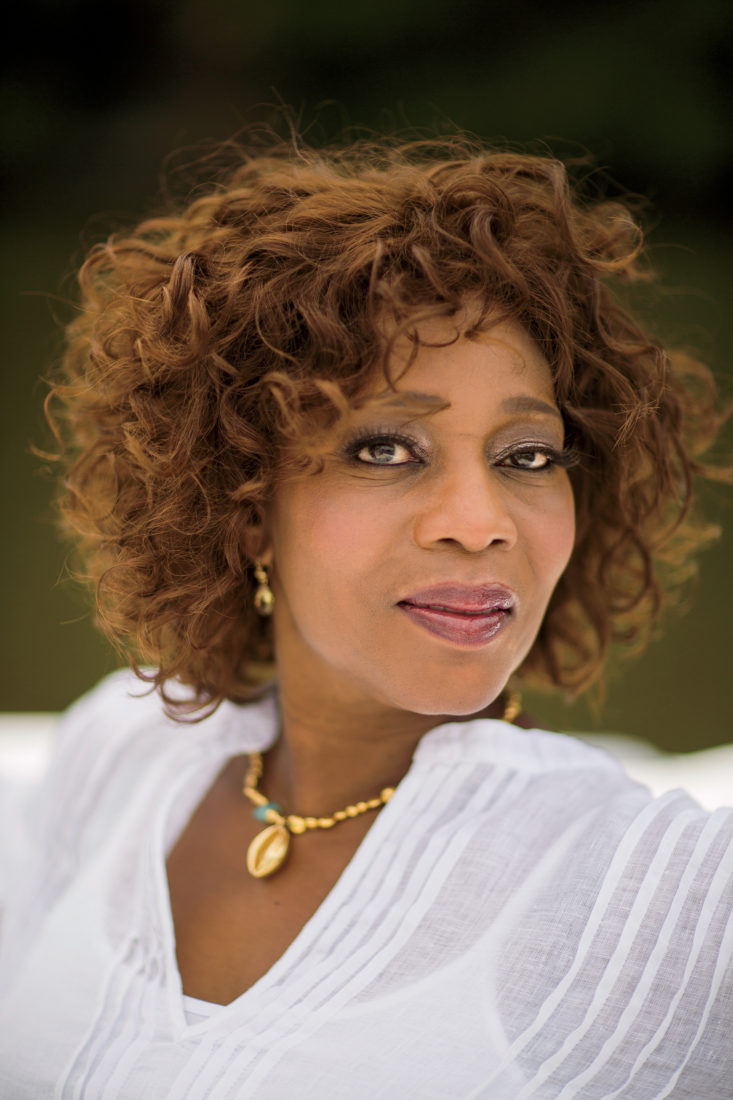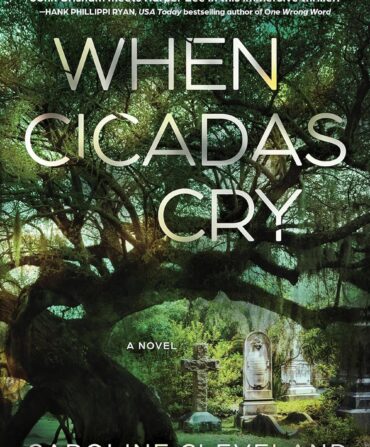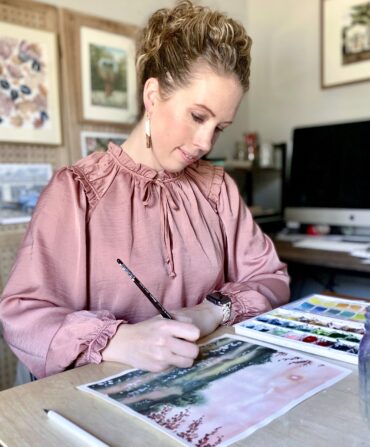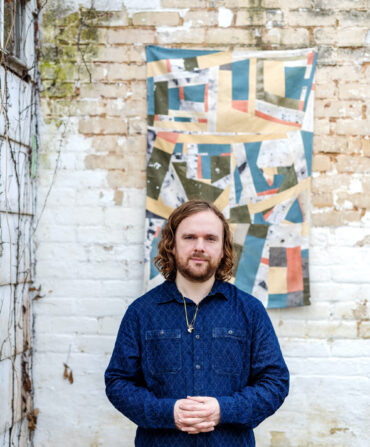Oklahoma native Alfre Woodard is one of those actors you never see acting. She seems instead like the wise, droll aunt we all wish we had, a woman who knows more than you ever will but doesn’t hold your ignorance against you. A woman not to be messed about, a woman whom you are always relieved to see enter the room. Sixty years old and married, with two grown children (Mavis, who is twenty-two, and Duncan, nineteen), Woodard has been nominated for eighteen Emmys (winning four) and an Oscar, and has appeared in hundreds of television series and films, including this fall’s big-screen drama 12 Years a Slave, starring fellow Oklahoman Brad Pitt. But she maintains she has no intention of slowing down. “I have had a great career, but I still haven’t done what I left Tulsa to do,” she says. “As Southerners, we are descended from storytellers.” Lucky for us, Woodard wants nothing more than to keep telling hers.
On your current TV series, Copper (BBC America), you play a freed slave brought to Civil War–era New York City.
Yes. I was in Zimbabwe on a human rights mission, worn out from what we were facing there, really in no shape to work. But when the script arrived, I decided I couldn’t not go. The homework was done. I was immediately jettisoned into that place and history.
Often when Hollywood does Southern, it gets kind of icky.
Oh, I’m the ‘Southern police’ on most of the projects I do. I say, ‘We’re supposed to believe this is the South and you see women putting their purses on the floor? Or men putting their hats on the table?’ Contrary to what many people seem to believe, there is no ‘stock Southerner.’ In fact, there is more variation in us than in other places. I don’t want to talk bad about people, but this well-known actress was playing a Southern woman, and she was cerebral. She was acting from the chest up, when she should have been acting from the bottom. A Southern woman is not who you play. A Southern woman is who you are.
You come from a giant family.
My mother was from a family of twelve. My father was from a family of twelve. My grandmother was from a family of seventeen kids. My grandfather was one of twenty. They were all sharecroppers. We laugh, because when we’d visit my grandma in Texas, you had to be careful. We’d be eyeing some guy and she’d say, “Get away from that boy. He’s your cousin!”
You were raised in Texas and North Tulsa during segregation. What do you remember most?
There was a vibrant African American community, a strong middle class, and the working-class people all had jobs and houses and daddies. I was a Girl Scout. I remember every teacher I had. They cracked the whip in their pumps and suits every day. People looked at you and expected things from you, and when that happens in life, you deliver. I saw millionaires driving to work. I saw entrepreneurs and shopkeepers and lawyers. There were ballet dancers. Exotic dancers. Black kids back then got to see every kind of life and make their own choices. Now we are economically segregated. And generations of kids are growing up without seeing people in their neighborhoods succeeding. Yes, our country was segregated. But I didn’t know that as a child. Our communities were these enclaves where amazing things happened all the time. I wasn’t called “the n word” until I was in college in Boston.

Photo: Brooks Kraft
Alfre Woodard, photographed on July 11, 2013, in Annapolis, Maryland.
Your parents made a point of taking you back to the land as well.
We all learned to shoot in the country as soon as we could hold the gun up. How to drive the tractor. I recall one Thanksgiving when my brother was thirteen, he was supposed to take down a hog. My father said, “Keep the gun steady. Don’t tear that up!” I was just standing around clutching at everyone’s elbow. After, my brother had to bleed the hog. It was an awakening. My father is going, “You love bacon. It doesn’t come from Safeway. This is ham right here.” I love chitlins. My mother would take them, batter and fry them like a little stick with some hot sauce. But when I saw my mom cleaning them from the sow, I almost fainted.
Farm life isn’t for wimps.
No, it is not. When people work the land, it is demonstrated to them every year that even if you put crops in, you never know what is going to happen. The land is the great equalizer. And if your neighbor’s crop fails, you make sure they eat. Both my parents came to the city with that core. My father would say it doesn’t matter if you have a feast when people three blocks away are hungry. They had that neighborly sensibility.
You live in California now. Do your children consider themselves Southern?
My kids get a kick out of the South. They’ve spent quite a bit of time there. When we go down to Texas and Oklahoma, my daughter will tease me. Normally, I’ll talk with them like, ‘I don’t know, how do you feel about that?’ But when we’re down South, I’m like, ‘Oh hell no! That is not going to happen up in here!’ Mavis just shakes her head and says, “Uh oh, Mom’s gone Texas!” [Laughs.] My mother made the best fried chicken in the entire world, and I fry chicken when it is a happy, homey time. But my kids prefer roasted chicken.
Okay. That is not Southern…
Right? They even say, “Why would you waste a perfectly good chicken frying it?” And I’m gasping, ‘If your grandmother could hear you now!’ But their values are Southern. I fostered that family closeness in them, having them understand what family is. And my son will always do well with the ladies because he is a Southern gentleman. He takes care of women age three to eighty-three.
What else do you value about the South?
I like that people touch each other there. They fight. They don’t back away from human contact. The South is like a family. There is more social engagement. There are more real relationships between cultures, age groups, economic groups. The people are alive. The region is a huge, breathing organism. My husband is from an old New England family. And I’m just saying, if you boil some meat instead of frying it, you aren’t going to be telling any good stories.
You sound a little homesick.
You want to know something? You can leave the South, but it never leaves you. And I think we feel confident because of that. If you are Southern, you never run out of company. Because it lives in your head and in your heart. It is a well inside you that keeps you from ever being lonely.







